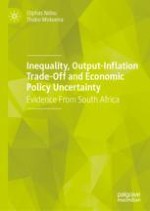2019 | OriginalPaper | Chapter
8. Does Monetary Policy Impact the Effects of Shares of Manufacturing Employment Shocks on Income Inequality?
Authors : Eliphas Ndou, Thabo Mokoena
Published in: Inequality, Output-Inflation Trade-Off and Economic Policy Uncertainty
Publisher: Springer International Publishing
Activate our intelligent search to find suitable subject content or patents.
Select sections of text to find matching patents with Artificial Intelligence. powered by
Select sections of text to find additional relevant content using AI-assisted search. powered by
